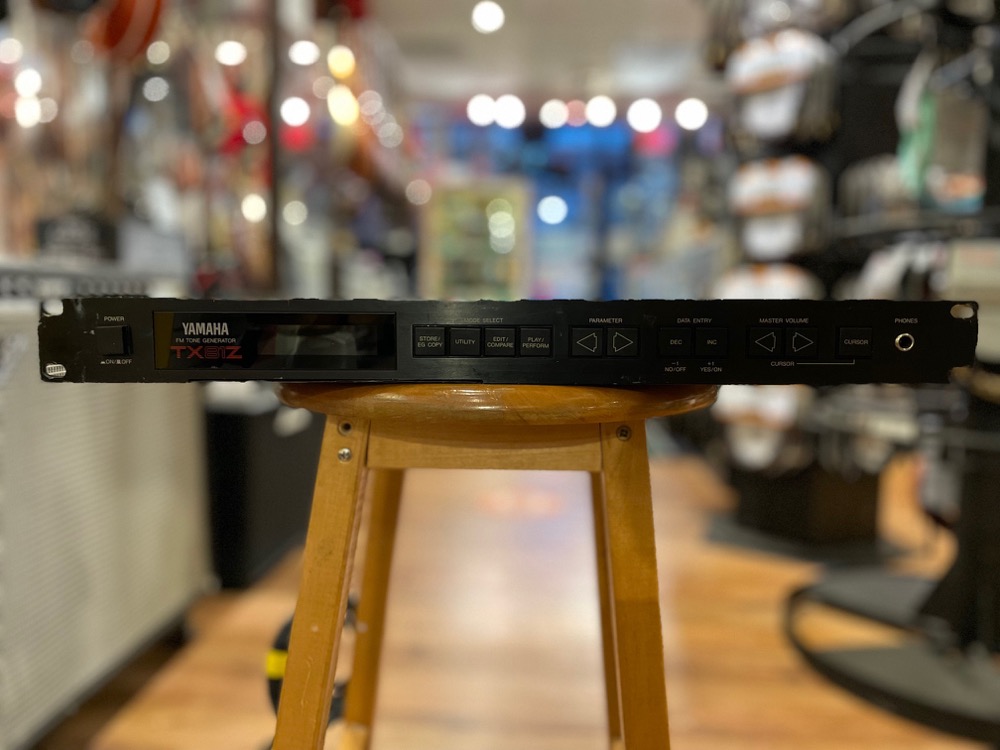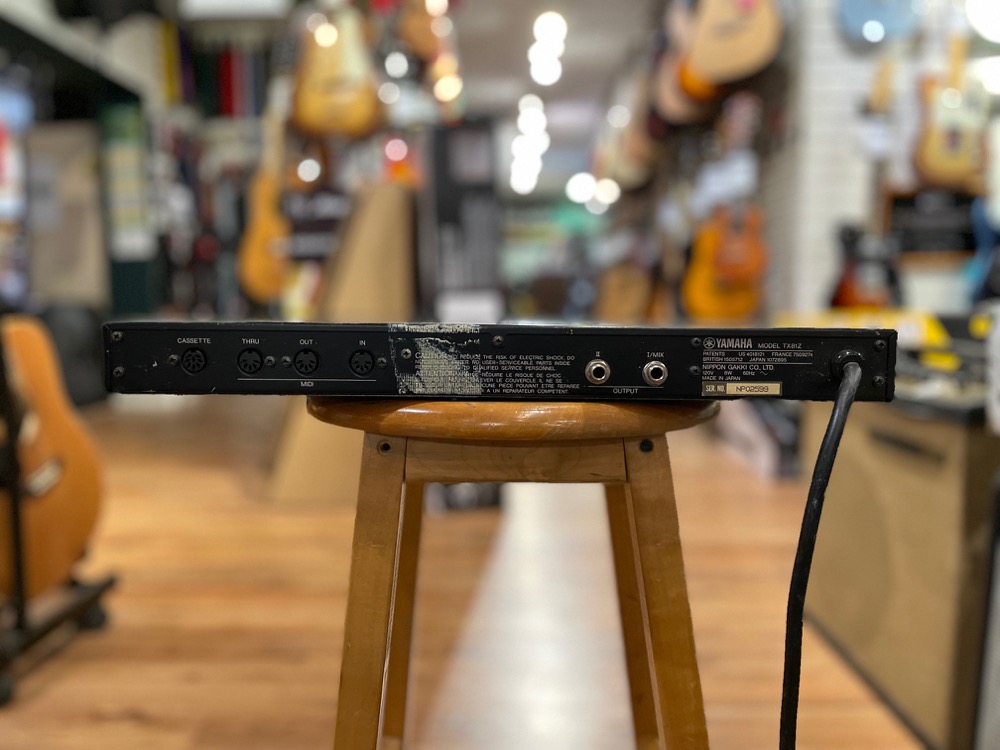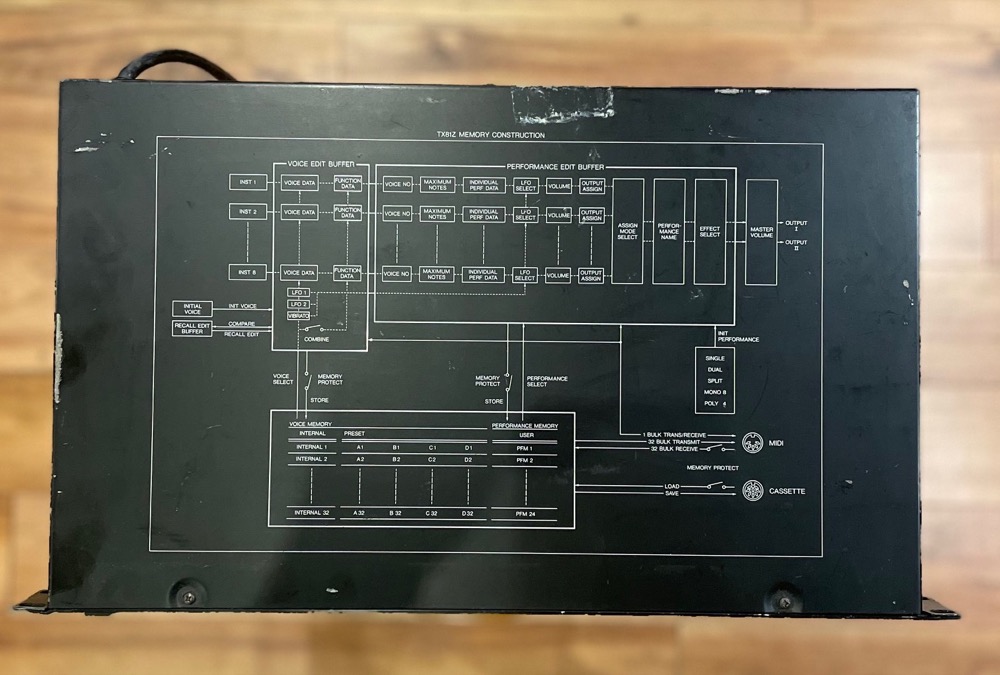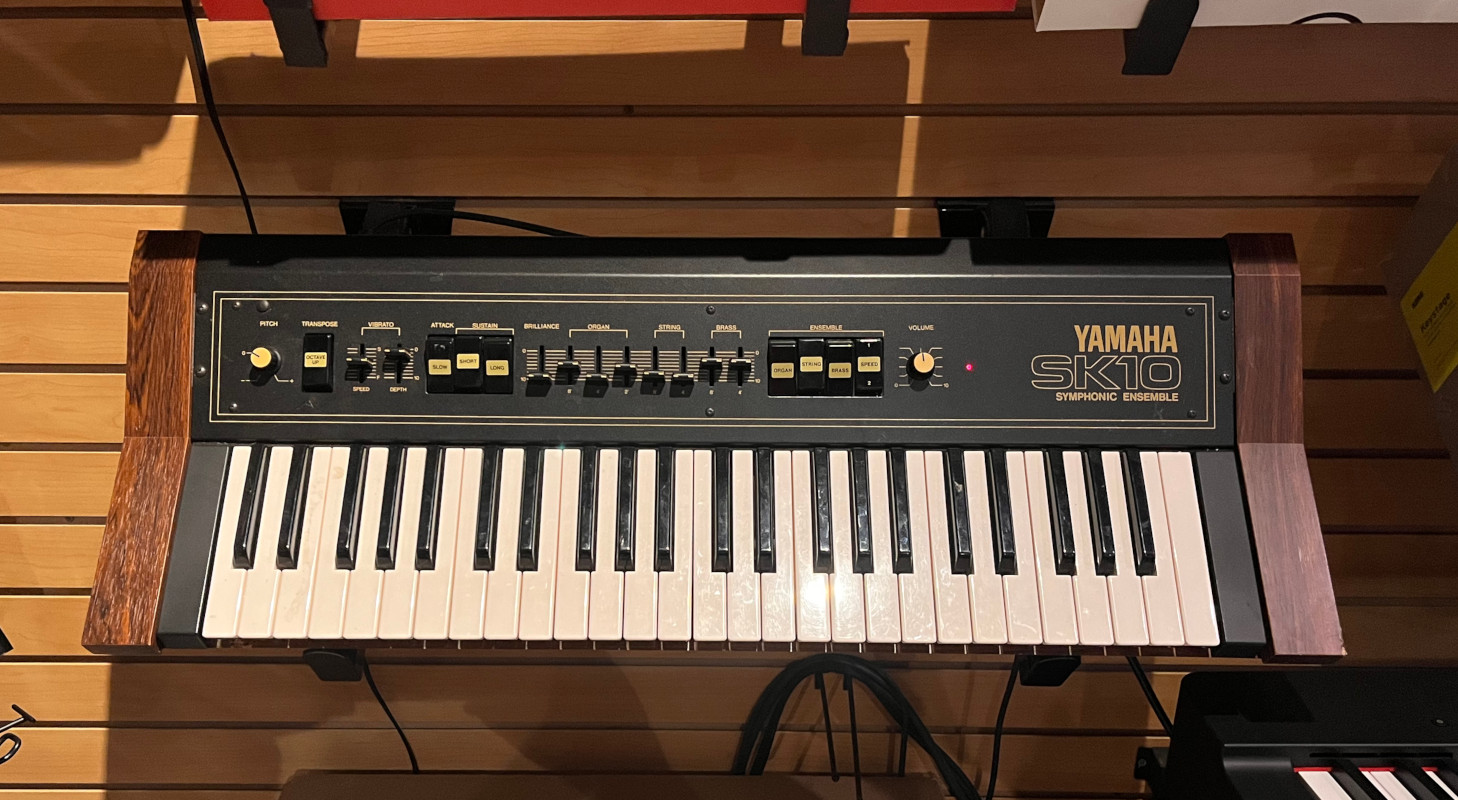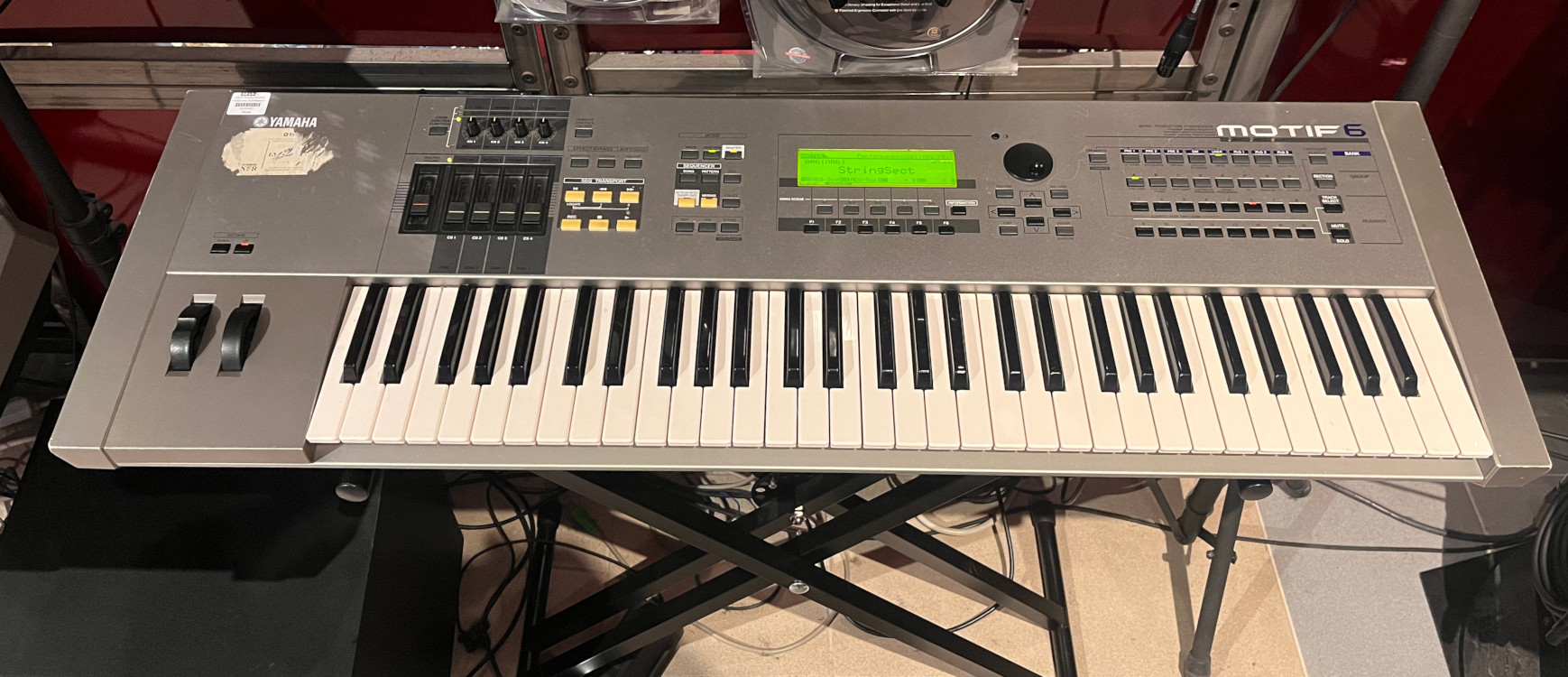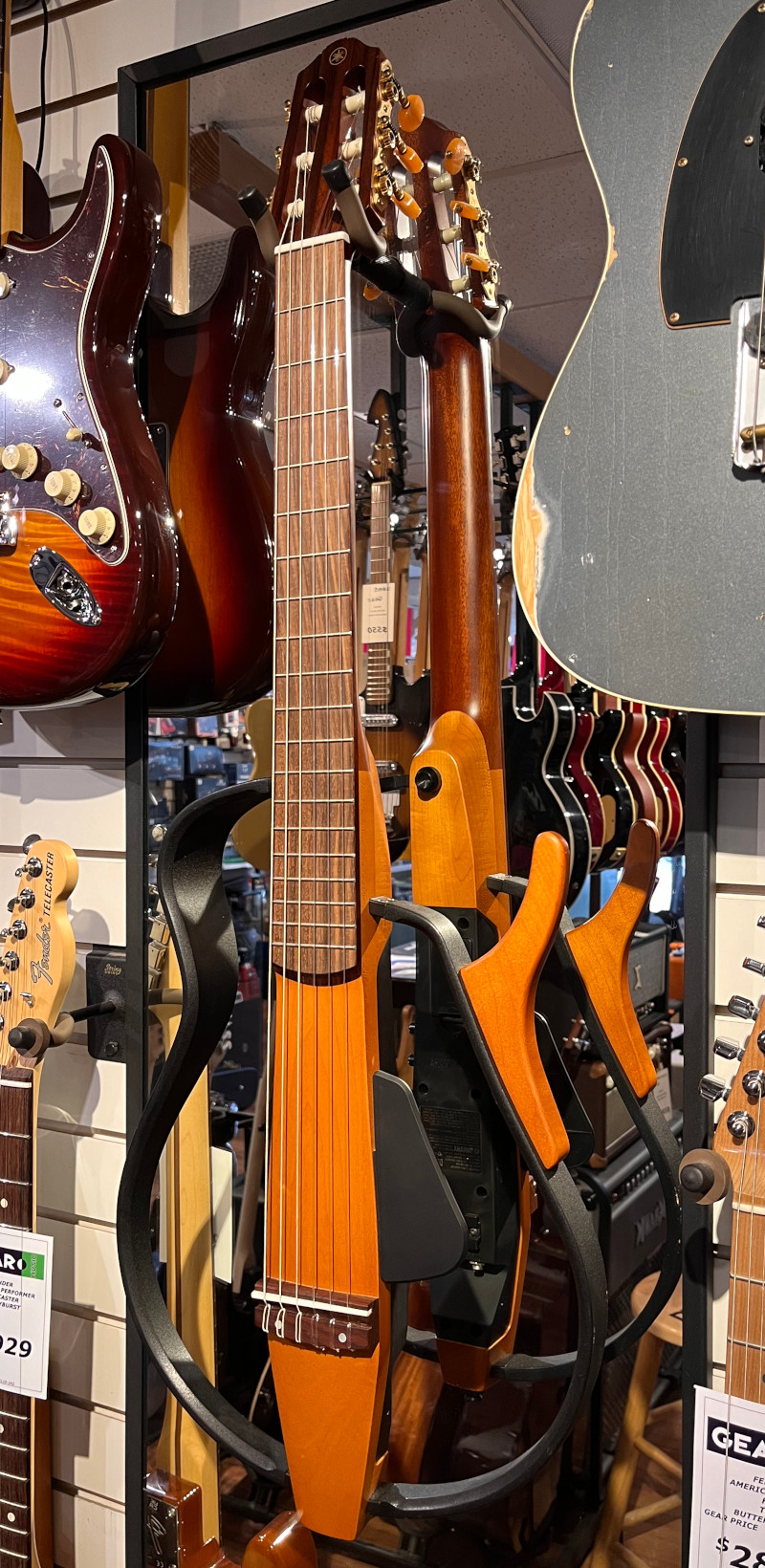The Yamaha TX81Z is a rack version of Yamaha DX11 and rack-mounted (keyboard-less) frequency modulation music synthesizer, which was released in 1987. Unlike previous FM synthesizers of the era, the TX81Z was the first to offer a range of oscillator waveforms other than just sine waves, conferring the new timbres of some of its patches when compared to older, sine-only FM synths. The TX81Z has developed a famous reputation, largely based on some of its preset bass sounds. A keyboard version with more onboard editing abilities was released the following year as the Yamaha DX11.
The unit is multitimbral, and has 128 ROM voices, 32 editable voice slots, and 24 editable Performance memories.
The RAM slots were rarely utilized due to the perceived high quality and usability of the original patches and the difficulty of programming new sounds with the limited front-panel interface. Among the presets is the famous LatelyBass, one of the most popular presets in synthesizer history.
The TX81Z is backwards-compatible with sound patches developed for Yamaha's DX21, DX27, and DX100 synthesizers.[1] It is also very similar, and almost completely patch-compatible, to the DX11 synthesizer, which is essentially a TX81Z with a velocity and pressure-sensing keyboard, and a pitch envelope.
The TX81Z is popular with many producers on a tight budget, and is still used by part-time house and acid house producers. Eliot Kennedy uses it for one purpose, a "classic dancefloor bass sound". Producer Babyface at one point had two units in his studio, both of which he kept set to the preset "LatelyBass", one detuned from the other; this expanded version of the preset became a part of his signature sound. TXz is very suitable for accordion use. It can be programmed to give Four Notes Right, Three notes Chord and One Note Bass. The machine can replicate the sounds of the old style Cordovox as well as add some further interesting sounds.



